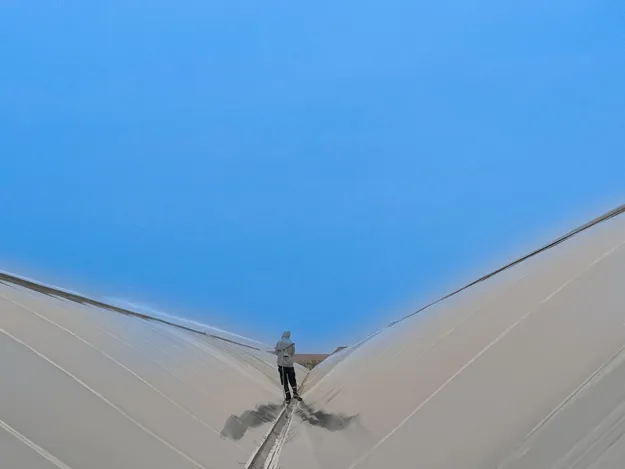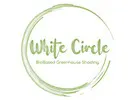This year, due to a darker-than-usual spring, greenhouse shading agents has been delayed, not just in Canada and the United States but also in some countries in Europe. "Typically, greenhouse shading in regions like North Africa, Spain, and France occurs in March, but this year it has been pushed back to late April and May," says Richard Hagedoorn of White Circle. He has been following the weather narrowly, as the newly found company has delivered its biobased shading agent product SunLess to growers in these regions.
Lowering temperatures
Lowering temperatures during hot summer days is crucial for reducing stress levels in crops, but getting as much light as possible on your crops is of vital importance for the profitability of a company as well – which is why during the dark spring of 2023, growers tended to apply their greenhouse shading agents later than usual.
"SunLess creates a high shading percentage for your crops. To avoid production losses, you need to protect your crop from the scorching sun during hot summer days," emphasizes Richard. "Lowering the temperature on hot summer days lowers the stress levels for crops, which is the standard to measure the success of shading agents. But the right timing is of great importance for growers – you don't want to be too early nor too late. In that light, we're happy to have provided the growers with a solution they can mix and apply themselves, so they're always on time."
Richard is with White Circle, a relatively new company active in the greenhouse shading market. After its start in 2022, this year so far has included visits to multiple trade fairs in France, Germany, and China, where they established relationships with potential customers. Through online meetings and face-to-face encounters with dealers, they successfully progressed to the next step, which involved applying the product to several greenhouses in different countries. Currently, users have started implementing SunLess, as evidenced by the attached photos. The shading agent has been successfully applied in regions such as North America and Africa.
"Our unique production process allows us to distribute all SunLess products in powder form. We have combined the strength of a liquid agent without the water, resulting in fewer buckets per hectare, lower transport costs, and reduced CO2 emissions. This ensures that growers can obtain the product at the best possible price, saving them 40% in transport costs and therefore directly on product costs compared to liquid shading agents", explains Richard.

He adds their newly developed shading agent is biobased, making it a sustainable alternative to most products available nowadays. "We are making strides in affordability and sustainability without compromising on quality."

For more information:
Richard Hagedoorn
White Circle
info@whitecircle.nl
www.whitecircle.nl
